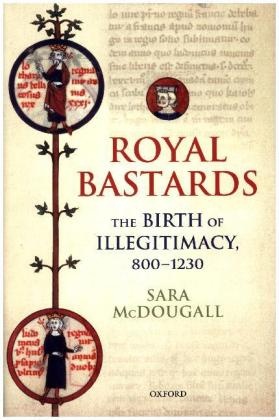Ulteriori informazioni
The stigmatization as 'bastards' of children born outside of wedlock is commonly thought to have emerged early in Medieval European history. Christian ideas about legitimate marriage, it is assumed, set the standard for legitimate birth. Children born to anything other than marriage had fewer rights or opportunities. They certainly could not become king or queen. As this volume demonstrates, however, well into the late twelfth century, ideas of what made a child a legitimate heir had little to do with the validity of his or her parents' union according to the dictates of Christian marriage law. Instead a child's prospects depended upon the social status, and above all the lineage, of both parents. To inherit a royal or noble title, being born to the right father mattered immensely, but also being born to the right kind of mother. Such parents could provide the most promising futures for their children, even if doubt was cast on the validity of the parents' marriage. Only in the late twelfth century did children born to illegal marriages begin to suffer the same disadvantages as the children born to parents of mixed social status. Even once this change took place we cannot point to 'the Church' as instigator. Instead, exclusion of illegitimate children from inheritance and succession was the work of individual litigants who made strategic use of Christian marriage law. This new history of illegitimacy rethinks many long-held notions of medieval social, political, and legal history.
Sommario
- Introduction
- 1: The Language of Illegitimacy
- 2: The Carolingian Example: The Sons of Concubines
- 3: Illegitimacy and the Making of Medieval Dynasties 900-1050
- 4: Maternal Lineage and Anglo-Norman Succession 950-1150
- 5: Canon Law, Canonists, and Bastards in the World of Ivo of Chartres
- 6: Redefining Marriage and Legitimacy (1140-1200): Ideas and Practices
- 7: Royal Bastards of the Twelfth Century: The Monk-King of Aragon's Daughter, the Abbess-Countess of Boulogne's Daughter, and Tancred of Lecce
- 8: Illegitimacy and Legitimation in the Thirteenth Century: Pope Innocent III, King Philip II, and Emperor Frederick II
- 9: Scandal in Jerusalem: Royal Succession and Illegitimacy
- 10: Saint Fernando III, The Bastard King of León
- Conclusion
Info autore
Sara McDougall is Associate Professor of History at John Jay College of Criminal Justice of the City University of New York and is a member of the doctoral faculty at the CUNY Graduate Center. Her research focuses primarily on marriage and law in medieval Europe. She is the author of Bigamy and Christian Identity in Late Medieval Champagne (2012) and has also published on adultery, marriage, illicit sex, and the role of gender in canon law. She was a Mellon fellow in Historical Studies at the Institute for Advanced Study in Princeton in 2014-2015.
Riassunto
The stigmatization as 'bastards' of children born outside of wedlock is commonly thought to have emerged early in Medieval European history, but Sara McDougall demonstrates that until well into the late twelfth century a child's prospects depended more upon the social status and lineage of both parents than of the legitimacy of their marriage.
Testo aggiuntivo
This is Sara McDougall's second book and it should establish her as one of the high flyers among American medieval historians ... she concentrates on royal cases -- explored in rich detail though without wasted words -- which should interest political historians even if they are not particularly concerned with medieval marriage as such, but the thesis applies more generally, a fortiori. She attacks the conventional narrative with the verve of a brilliant litigator with all the facts at her command, ranging from Merovingian Francia to the thirteenth century ... [an] important contribution to our understanding of politics, inheritance and the papacy in the Middle Ages.
Relazione
McDougall employs an impressive array of sources, including individual case studies, theological writings, chronicles, genealogies, letters, charters, and literary works, providing a rare glimpse into the lives of an array of noble families. The significance of maternal lineage in determining status calls into question past tendencies to discount the importance of royal wives and mothers during this period. McDougall situates the sources, particularly those issued by the church, within the wider context of the individual disputes that prompted their production. This approach allows McDougall to identify the full range of factors that informed attitudes about royal succession between 900 and 1250, providing an important caution against the temptation to "read back" terms and practices on the past. Erin L. Jordan, Journal of the History of Childhood and Youth

